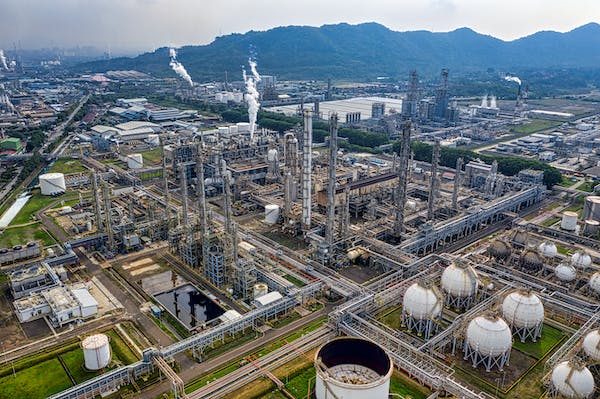The impact of an epidemic on the oil sands has recently become a topical issue. In light of the current Covid-19 pandemic, the effects of an epidemic have entities in the oil sand industries, ranging from industry stakeholders to those overseeing regulatory policy, concerned about the potential economic and social implications of increasingly global networks of business and people.
Before addressing the impact of an epidemic on the oil sands, it is important to understand the characteristics of the oil sands industry. The oil sands industry is heavily represented in Alberta, Canada, and is one of the largest sources of oil production in North America. It is composed of several large-scale operations, such as surface mining and in-situ extraction, and requires a large workforce to support these activities. The oil sands industry has long been faced with a variety of environmental, safety, and human resource challenges, making it a particularly vulnerable industry when faced with an epidemic.

The impact of an epidemic on the oil sands industry is two-fold; first, it impacts the ability of operations to continue to function with minimal disruption, and second, employees can become infected and incentives for work can be compromised. In addition, the concerns of the health and safety of employees as well as the potential economic repercussions of a full-blown pandemic have been discussed widely.
For instance, the impact of an epidemic on the oil sands in relation to employee health and safety has been of particular concern. The largest concern related to the health and safety of employees during a pandemic is their direct exposure to airborne pathogens. When infected employees are not adequately screened during the hiring process, they can be exposed to the potentially hazardous environment of the oil sands. In addition, employees may be exposed to pathogens while they are in the field due to the large expanses of open, untouched terrain, mixture of dust due to surface mining, and the potential for contact with wildlife, increasing overall risk.
In addition to the health and safety of employees, the economic and financial vulnerability of the oil sands industry due to a pandemic is of great concern. The economic complications caused by a pandemic could heavily disrupt the demand for, and production of, oil, resulting in a decrease in oil prices. This in turn could reduce the profitability of the oil sands operations, leading to a decrease in job openings and a decrease in the spending power of employees.
The impact of an epidemic on the oil sands has forced the industry to enact several policies focusing on health and safety protocol measures, human resource practices, and financial support for those negatively affected. For instance, the oil industry has focused on health and safety protocol measures, where reinforcement of safety practices, personal protective equipment, and Covid-19 policies are key priorities. These measures have helped to minimize direct contact between the infected and non-infected while still maintaining operations.
Aside from health and safety measures, the industry has also enacted several human resource-oriented policies to help cushion the impact of an epidemic. These include providing flexible leave and working from home policies, providing enhanced access to mental health and wellness resources, and providing additional monetary compensation for those affected. Lastly, financial measures such as grants and subsidies have been used to provide financial relief to those affected, allowing them to weather the storm of an epidemic and manage the financial stress associated with it.
The impact of an epidemic on the oil sands is an issue that will likely remain a significant concern amongst oil sands industry stakeholders, governmental entities, and the public in general. While the potential for an economic and social impact of a full-blown pandemic is a valid one, it is paramount that those involved in the oil sands industry continue to put in place policies and protocols to help minimize potential disruption and reinforce the safety of workers in the field.
In conclusion, the impact of an epidemic on the oil sands has become a pressing issue as we continue to navigate the global Covid-19 pandemic. Companies must take action to implement policies and protocols to help minimize the potential disruption and mitigate the impact of an epidemic on the oil sands. It is important that the necessary health and safety protocols are in place to ensure the well-being of those working on the oil sands, and that additional financial support is provided to those impacted.